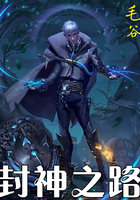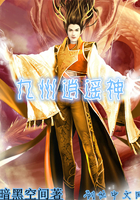For Hannu, Markku, Petri, and Toni, who were there
The publishers thank the
Finnish Literature Information Centre
for providing a grant for the translation of this book.
Dusk Crept Through the Greenwood
ANGEL
I'm starting to get worried. Martes's face seems to be sort of fluctuating in the light fog induced by my four pints of Guinness. His hand's resting on the table close to mine. I can see the dark hairs on the back of his hand, his sexy, bony finger-joints and his slightly distended veins. My hand slides toward his and, as if our hands were somehow joined together under the table, his moves away in a flash. Like a crab into its hole.
I look him in the eyes. His face wears a friendly, open, and understanding smile. He seems at once infinitely lovable and completely unknown. His eyes are computer icons, expressionless diagrams, with infinite wonders behind them, but only for the elect, those able to log on.
"So why did you ask me out for a drink? What did you have in mind?"
Martes leans back in his chair. So relaxed. So carefree.
"Some good conversation."
"Nothing more?"
He looks at me as if I've exposed something new about myself, something disturbing but paltry: a bit compromising, but not something that will inexorably affect a good working relationship. It's more as if my deodorant were inadequate.
"I have to tell you honestly that I'm not up for it."
My heart starts pounding and my tongue responds on reflex, acting faster than my brain.
"It was you who began it."
When we were little and there was a schoolyard fight, the most important thing was whose fault it was. Who began it.
And as I go on Martes looks at me as if I weren't responsible for my behavior.
"I'd never have let myself in for this … if you hadn't shown me, so clearly, you were up for it. As I've told you, I'm hot shit at avoiding emotional hangups. If I've really no good reason to think the other person's interested I don't let anything happen. Not a thing. Hell, I don't even think it."
Memories are crowding through my mind while I'm sounding off—too angrily, I know. I'm recalling the feel of Martes in my arms, his erection through the cloth of his pants as we leaned on the Tammerkoski River bridge railings that dark night. I can still feel his mouth on mine, tasting of cigarettes and Guinness, his mustache scratching my upper lip, and it makes my head start to reel.
Martes reaches for his cigarettes, takes one, flicks it into his mouth, lights his Zippo and inhales deeply, with deep enjoyment.
"I can't help it if I'm the sort of person people project their own dreams and wishes onto."
In his opinion nothing has happened.
In his opinion it's all in my imagination.
I crawl home at midnight, staggering and limping—it's both the beer and the wound deep inside me. Tipsily, I'm licking my wound like a cat: my thought probes it like a loose tooth, inviting the dull sweet pain over and over again—dreams and wishes that won't stand the light of day.
The street lamps sway in the wind. As I turn in through the gateway from Pyynikki Square, sleet and crushed lime leaves blow in with me. There's loud talk in the corner of the yard.
A loathsome bunch of kids are up to something in the corner by the trash cans—young oafs, jeans hanging off their asses and their tattered windbreakers have lifted to show bare skin. They've got their backs to me, and one of them's goading another, using that tone they have when they're challenging someone to perform some deed of daring. This time it's to do with something I can't see, at their feet. Normally I'd give thugs like these a wide berth—they make my flesh crawl. They're just the sort that make me hunch up my shoulders if I pass them in the street, knowing I can expect some foul-mouthed insult—but just now, because of Martes, because I don't give a damn about anything and with my blood-alcohol count up, I go up to them.
"This is private property, it belongs to the apartment building. Trespassers will be prosecuted."
A few heads turn—they sneer—and then their attention goes back to whatever's at their feet.
"Afraid it'll bite?" one asks another. "Give it a kick."
"Didn't you hear? This is private property. Get the fuck out of here." My voice rises, my eyes sting with fury. An image from my childhood is flashing through my brain: a gang of bullies from an older class are towering above me, sneering at me, and goading me in that same tone—"Afraid it'll bite?"—and then they stuff my mouth with gravelly snow.
"Shove it up your ass, sweetie," one of these juvenile delinquent coos tenderly. He knows I've no more power over them than a fly.
"I'll call the police."
"I've called them already," says a voice behind me. The ornery old woman who lives on the floor below me and covers her rent by acting as some kind of caretaker has materialized behind me. The thugs shrug their shoulders, twitch their jackets, blow their noses onto the ground with a swagger and dawdle away, as if it was their choice. They shamble off through the gateway, manfully swearing, and the last one flicks his burning cigarette butt at us like a jet-propelled missile. They've hardly reached the street before we hear anxious running feet.
The lady snorts. "Well, they did do what they were told."
"Are the police coming?"
"'Course not. Why bother the police with scum like that? I was off to the Grill House myself."
The adrenaline's cleared my head for a moment, but now, as I struggle to dig out my keys, my fingers feel like a bunch of sausages. The woman's on her way to the gate, and that's fine, because my pissed brain's buzzing with a rigid, obsessive curiosity. I wait until she's off and start peering among the garbage cans.
And there, tucked among the cans, some young person is sleeping on the asphalt. In the dark I can only make out a black shape among the shadows.
I creep closer and reach out my hand. The figure clearly hears me coming. He weakly raises his head from the crouching position for a moment, opens his eyes, and I can finally make out what's there.
It's the most beautiful thing I've ever seen.
I know straight away that I want it.
It's small, slender and it's curled up in a strange position, as if it were completely without joints. Its head is between its knees, and its full black mane of hair is brushing the muddy pavement.
It can't be more than a year old. A year and a half at the most. A mere cub. By no means the huge bulk you see in illustrations of the full-grown specimens.
It's hurt or been abandoned, or else it's strayed away from the others. How did it get to the courtyard of an apartment building in the middle of the town? Suddenly my heart starts thumping and I swing around, half expecting to see a large black hunched shadow slipping from the garbage cans to the gate and then off into the shelter of the park.
I react instinctively. I crouch down by it and carefully bend one of its forearms behind its back. It stirs but doesn't struggle. Just in case, I twist the strap of my bag all around the troll so that its paws are fastened tightly to its side. I glance behind me and lift it up in my arms. It's light, bird-boned, weighing far less than a child the same size. I glance quickly at the windows. There's nothing but a reddish light glowing in the downstairs neighbor's bedroom. The glamorous head of a young woman pops up in the window, her hand drawing the curtain. Now.
In a moment we're in my apartment.
It's very weak. When I lower it onto the bed it doesn't struggle at all, just contemplates me with its reddish-orange feline eyes with vertical pupils. The ridge of its nose protrudes rather more than a cat's, and its nostrils are large and expressive. The mouth is in no way like the split muzzle of a cat or a dog: it's a narrow, horizontal slit. The whole face is so human-looking—like the face of the American woolly monkey or some other flat-faced primate. It's easy to understand why these black creatures have always been regarded as some sort of forest people who live in caves and holes, chance mutations of nature, parodies of mankind.
In the light, its cubbishness is even more obvious. Its face and body are soft and round, and it has the endearing ungainliness of all young animals. I examine its front paws: they're like a rat's or racoon's, with flexible, jointed fingers and long nails. I untie it, and the cub makes no move to scratch or bite. It just turns on its side and curls up, drawing its tufted tail between its thighs and folding its front paws against its chest. Its tangled black mane falls over its nose, and it lets out that half-moan/half-sigh of a dog falling asleep.
I stand at the bedside, looking at the troll-cub and taking in a strong smell—not unpleasant, though. It's like crushed juniper berries with a hint of something else—musk, patchouli? The troll hasn't moved an inch. Its bony side heaves to the fast pace of its breathing.
Hesitantly I take a woolen blanket from the sofa, stand by the bed a while, and then spread it over the troll. One of its hind legs gives a kick, like a reflex, swift and strong as lightning, and the blanket flies straight over my face. I struggle with it, my heart pumping wildly, for I'm convinced the frightened beast will go for me, scratching and biting. But no. The troll lies there curled up and breathing peacefully. It's only now that I face the fact that I've brought a wild beast into my home.
My head and neck are aching. I've been sleeping on the sofa. It's ridiculously early; still dark. And there's nothing on the bed. So that's what it's all been: a fantasy that won't survive the first light of day.
Except that the blanket lies crumpled on the floor by the bed, and there's a faint little sound coming from the bathroom.
I get up and walk slowly, in the light of the streetlamps filtering through the window, creeping as quietly as I can to the bathroom door. In the dusk I can see a small black bony bottom, hind legs, a tufted twitching tail, and I realize what's happening. It's drinking from the toilet bowl. The juniper-berry smell is pungent. Then I spot a yellow puddle on my mint-green tiled floor. Naturally.
It has stopped lapping up water and has sensed that I'm there. Its torso is up from the bowl so fast I can't see the movement. Its face is dripping with water. I'm trying to convince myself that the water is perfectly clean, drinkable. I'm trying to remember when I last scrubbed the bowl. Its eyes are still dull, it doesn't look healthy, and its pitch-black coat is sadly short of gloss. I move aside from the bathroom door, and it slides past me into the living room, exactly as an animal does when it's got another route to take—pretending to be unconcerned but vividly alert. It walks on two legs, with a soft and supple lope: not like a human being, slightly bent forwards, its front paws stretched away from its sides—ah, on tiptoe, like a ballet dancer. I follow it and watch it bounce on to my bed, effortlessly, like a cat, as though gravity didn't exist—then curl up and go back to sleep again.
I go back to the kitchen for a cereal bowl, fill it with water and put it by the bed. Then I start mopping up the bathroom floor, though I've got a splitting headache. What the hell do trolls eat?
Back in my study, I leave the door open, boot up my computer, connect to the Internet and type TROLL.
Troll (older forms: hobgoblin, bugbear, ogre), Felipithecus trollius. Family: Cat-apes (Felipithecidae)
A pan-Scandinavian carnivore, found only north of the Baltic and in western Russia. Disappeared completely from Central Europe along with deforestation but, according to folklore and historical sources, still fairly common in medieval times. Not officially discovered, and scientifically classified as a mammal, until 1907. Before then assumed to be a mythical creature of folklore and fairy tale.
Weight of a full-grown male: 50–75 kg. Height standing upright: 170–190 cm. A long-limbed plantigrade, whose movements nevertheless show digitigrade features. Walk: upright on two legs. Four long-nailed toes on the hindlimbs, five on the forelimbs, both including a thumb-like gripping toe. The tail long, with a tuft. The tongue rough. The overall color a deep black, the coat dense, sleek. A thick black mane on the head of the males. Movement only at night. Main nourishment: small game, carrion, birds' nests, and chicks. Hibernates. Cubs probably conceived in the autumn before hibernation, the female giving birth to one or two cubs in spring or early summer. About the behavior of this animal, however, so extremely shy of human contact, there is very little scientific knowledge. Extremely rare. Supposedly there are about four hundred specimens in Finland. Classified as an endangered species.
ANGEL
This is making me no wiser. I click on SEARCH and come up with the following:
Because of their great outward resemblance to humans or apes, trolls were originally mistaken for close relatives of the hominids; but further study has demonstrated that the case is one of convergent evolution. Misclassified a primate, the species was first erroneously designated "the Northern Troglodyte Ape" (Latin: Troglodytas Borealis). Later it was observed that the troll belonged to a completely independent family of carnivores, the Felipithecidae, but the apelike attributions survived for a time in the nomenclature, Felipithecus troglodytas. At present, the established, scientifically accepted nomenclature of the species still bows to popular tradition as Felipithecus trollius. An interesting episode in the naming of the troll was a suggestion from the prestigious Societas pro Fauna et Flora: relying on the mythical and demonic connotations, they proposed the name Felipithecus satanus.
Only one other species of the Felipithecidae is known, the almost extinct yellow cat-ape (Felipithecus flavus), a roughly lynx-sized creature whose habitat is the heart of the Indonesian rain forest. The common ancestor of the species is believed, on fossil evidence, to have inhabited Southeast Asia.
Though, on the evidence of its mode of life and dentition, the troll is clearly a carnivore, many scientists consider that the species does not properly belong to the order of Carnivora. Theories exist that the troll is more closely related to the insectivores and primates than to the true feline predators, and this is supported by certain anatomical features.
It has been suggested that several other species whose existence has not been scientifically established beyond doubt (such as the legendary Tibetan "Abominable Snowman," or Yeti, of hearsay, and the mythical North American Sasquatch, or "Bigfoot") may also be humanity-shunning representatives of the Felipithecidae family.
Firm proof of the existence of Felipithecus trollius was not obtained until 1907, when the Biological and Botanical Department of the Tsar Alexander University of Helsinki received the carcass of a full-grown troll that had been discovered dead. There had been previous reports of firsthand sightings of trolls, but this legendary creature, oft-mentioned in folk tradition and in the Kalevala, was considered a purely mythical beast in scientific circles. Clearly, the occasional troll-cub encountered in the wilderness served to maintain myths of gnomes and goblins, especially in light of the theory that the trolls regulate any great increase in their population by abandoning newborn offspring.
The troll's ability to merge with the terrain, the inaccessibility of its habitat, its aversion to human contact, its silent night-habits and its hibernation in cave-dens, causing them rarely to leave snow tracks, may partially explain the late discovery of the species. The troll's zoological history is thus very similar to those of, for example, the okapi, not identified until 1900, the Komodo dragon (1912), and the giant panda (1937). In spite of abundant oral tradition and many sightings by the aboriginal population, accounts of these animals were long classified by scientists as myth and folklore. It is worth remembering that an estimated 14 million subspecies of animals live on the planet, of which only about 1.7 million are recognized and classified, less than 15% of all species. The relatively large cloven-footed animals, Meganuntiacus vuquangensis and Pseudoryx nghetinhensis, for example, were only discovered in 1994 …
ANGEL
As I sit at my computer I glance from time to time at the bedroom. When I was drunk it seemed a hell of a good idea to bring this touching, rejected wild-animal cub into my pad. An animal that may grow as much as two meters tall.
But even now, when I'm totally sober, the animal has something absolutely captivating about it. Is it just a professional's appreciation of its visual grace?
Or is it that as soon as I see something beautiful I have to possess it? With my camera or with my eye or with my hand? Through the shutter or by shutting the door?
Even though I won't know what to do with it?
But nothing changes the fact that the creature's still small. And sick. And weak. And totally abandoned.
I print off a whole load of Internet material, without feeling it's any help. I return to netzoo and click on EVOLUTION.
I learn that "convergent evolution" refers to species that develop in ways resembling each other without there being any close zoological relationship. Good examples are the shark, the ich-thyosaur, and the dolphin, which have developed from completely different vertebrate forms: the shark from fish, the ichthyosaur from land-dwelling reptiles, and the dolphin from land mammals. Nevertheless, they've all developed into streamlined, finned and tailed animals in the same ecological group: swift piscivorous marine predators. There are many other examples: grassland-dwelling flightless birds, such as the emu, the ostrich, and the extinct moa; or such semi-aquatic marine creatures as seals, sea-lions, and herbivorous sirenians, notably the dugong and the endangered manatee.
I'm getting more informed than I ever wanted to be. According to the entry, convergent evolution means that, in widely separated terrains, the same atmospheric and environmental conditions can, through their physical properties, produce similar kinds of living organisms from totally different prototypes. Cases of convergent evolution are, on the one hand, the trolls and the Southeast Asian cat-apes, derived from a small arboreal animal slightly resembling the mustelid or racoon, and, on the other, the apes and hominids derived from proto-primate mammals. Both occupied the same ecological niche, where bipedalism and prehensile forefingers were survival factors for the species …
Nothing to help me, though.
I look at my computer. It's just a machine.
I'll have to try elsewhere.
I can only speculate about the effect of the telephone ringing at Dr. Spiderman's—at my old flame Jori H?m?l?inen's, that is—"H?m?h?m?-h?m?l?inen," because getting worked up always makes him stammer. H?m?h?kki being Finnish for spider, he's naturally been dubbed "Spiderman." Eight rings before he replies, and his voice reveals he's ready to flip his lid.
First I fumble for the customary "How are things?", etc., but I know that this road will soon be blocked.
"Sweet Angel, golden-haired cherub," comes Spider's slightly nasal, taunting voice. "It's not very long ago you gave me a very nasty kick in the gluteus—after scarcely a couple of months of your angelic blessings. So what, I wonder, makes you call me now? And especially at this early hour."
I splutter something about how I thought we'd agreed to be friends.
"I was beginning to think your mother had talked some sense into you—she always did dream you'd be partners with a real doctor, didn't she?" Spider lashes out, making me blush. Then his tone changes, sounding almost interested. "You didn't manage to net that guy, did you?"
It's already coming home to me that this call is a terrible mistake, but Spiderman goes on relentlessly.
"There you were, your great blue eyes moist with tears, trying to stammer out that I'm not your type, that I'm not the right one, and how 'you'd be wounding me if you went on with a relationship where you yourself couldn't be a hundred percent committed.' And meanwhile you were going on about that other guy the whole time.'"
Was I really? Hell, it was possible. As if I could have possessed him by talking about him, throwing his name about, would-be casually.
"You really relished his name on your tongue. Martti, Martti—Martti this and Martti that. Guess how flagrant and repellent it sounded. And it was crystal clear that all your would-be serious, pretty little speech meant was this: you wanted me out of the way, so you could be free to step on the gas when this object of distant adoration—obviously your right-and-proper future commitment—gave the green light. Or what?"
I'm speechless. Incapable of saying anything.
"So then. What do you want?"
I clear my throat. This isn't going to be easy.
"What do you know about trolls?"
There's a howl of demonic laughter in my ear. "Angel, darling, now I must have your permission to be inquisitive. Are you writing an essay for school?"
I mumble something stupid about having a bet on it. "You know," I wind up helplessly, "about the sorts of things they eat." I can feel the receiver radiating embarrassed silence into Spiderman's ear.
He finally bursts out, "You ring an expensive veterinary surgeon at eight-thirty on a Sunday morning to ask what trolls eat?"
I know Spider can be a prick and always is, given the chance, but then he's never been able to resist an opportunity to show off his knowledge either. I'm right. A familiar lecturing tone creeps into his voice.
He starts ticking items off. "Frogs, small mammals. They rob birds' nests. Sometimes they've been reported to prey on lambs in outlying fields, but that's probably just rumor. There's a theory that they fish with their paws, like bears, which I've no reason to doubt. Hares. Game birds. Now and then a reindeer-calf caught by the leg can end up as a troll's dinner. Sometimes they harass white-tailed deer, too. They eat carrion when they come across it. A full-grown individual requires a kilo or two of animal protein a day. Any more questions?"
I nod at the receiver and let out assenting noises.
"Definitely carnivores, but not omnivorous like, for instance, bears. Similar digestive system to cats. So if you're betting that trolls gnaw at spruce shoots by moonlight, your money's down the drain. And if you want more information, Angel, my fairy queen, go to the library and consult Pulliainen's The Large Predators of Finland."
And then, cuttingly, he hangs up.
IIVAR KEMPPINEN, FINNISH MYTHOLOGY, 1960
As with the folklore of other peoples, Finnish mythology finds a significant place for not only ghosts and fairies but many demonized animals, particularly the bear, the troll, the wolf, the snake, the lizard, the frog, the weasel, the shrew, the wasp, the death-watch beetle, and the louse. Demonic animals differ from ghosts and fairies in that they are usually clearly visible and recognizable, with the exceptions of the shy and secretive troll and the weasel. Sometimes, however, a demonic creature is so closely identified with fairy existence that a creature—the troll, for example—may be offered sacrificial food on an altar stone; and a pet snake has been accused of being a witch's "familiar spirit" (Finnish Folklore Archives, Karttula, Juho Oksanen, No. 10129; Sortavala, Matti Moilanen, No. 2625).
Demonic animals have been much discussed in international scientific literature, and various theories have been presented. Finnish folklore itself has its own explanation for the demonic resonance and significance of the above animals: they are predatory or otherwise baneful beasts generated by Pohjola or Manala, the Underworld or Hades of northern Finnish folklore, and sent to be a torment and a scourge on the face of the earth. As representatives of the malign powers of Manala they are hated but at the same time propitiated and placated. Thus, if anyone does harm to these semi-supernatural creatures, such as a pet snake or frog, they will bring misfortune on themselves.
Tapio, the tutelary genius of the forest, personified the spirit of the forest, and as such is one of the earth sprites (Ganander, 1.89; Gottlund, 1.350). The genius of the gloomy forests is also called Hiisi, or Demon. Thus Tapiola and Hiitola, as names for the forest, mean they are the dwelling places of Tapio or Hiisi. But sometimes the forest itself is given the appellation Tapio or Hiisi, without any reference to a guardian or the forest fauna (SKVR VII 1, No. 810, 823). Similarly the Karelians refer to the forest people as Hiisi's people, and Hiisi has acquired a demonic reputation as a representative of the malign forces of Manala. In the parish of Hiitola the forestlands are called Hiisi's hills (Hiijje mi?t in the Karelian dialect), where bad Hiisis, or demons, are said to live. Also, in a Karelian dialect, met?h (Finnish mets?, forest) means "the devil" (Kujola, 1.234–35). This identification of the forest people with the underworld's people, the Demon's people, has clearly occurred because the dark forest, with its bears, wolves, trolls and other bugbears, was frightening, so that it was an easy transition to equate it with Manala, the fabled breeding place of the beasts of prey, given birth to by the Mistress of Pohjola, the Northland (§313).
ANGEL
On the bed a lusterless black flank is heaving feverishly. Wild-cat digestion.
I dash to the fridge and poke about frantically. Orange marmalade, kalamata olives, fresh but already somewhat wilted arugula, imported blue cheese.
A cat. A cat. What do cats eat?
Cat food.
And in a flash I recollect something: what's the guy's name downstairs? Kaikkonen? Korhonen? Koistinen? The man with the young foreign wife. They've got some sort of a pet. Once I saw the man opening the front door, about to go in, and he was carrying a red-leather harness.
So they've got a cat, for I've seen neither of them walking a dog.
PALOMITA
Sleep's a well—I float up from it like a bubble. The water's black honey. My arms and legs are trying to stir in the syrupy night. I drag my lids open, so my eyes smart.
I'm damp with sweat and my heart's starting to race. For a moment I think the sound I hear is the bell on the bar counter back at Ermita. The bell that orders me out of the back room. But luckily my hand touches something, my eyes open, and I'm surrounded by the gray-blue of the room's make-believe night.
I've been in a very deep sleep, as I always am when Pentti's away. When I'm alone, as soon as I drop off I feel I'm spinning downward. I don't need to tense every bit of my body, like when Pentti's beside me. No need to wake up at every sound. Pentti, when he's asleep, sounds like someone suffocating.
The ringing isn't at all like the horrible silvery bar-bell at Ermita. It's tinnier and rougher and makes you jump. Ring-ring-ring it goes in the empty hall that Pentti's removed all the coats from and locked them up in the closet for the time he's off on his trip. I slip my slippers on and get my bathrobe off the chair. The bell rings again and again, as if someone's in a terrible state. I get the footstool out of the cupboard and climb on it to peep through the peephole.
It's the man from upstairs who's ringing the bell. He's fair and tall and curly-haired. I've seen him once before on the staircase outside.
I've learned always to look through the peephole. Pentti doesn't want me to open the door to anyone except those he's told me to. The peephole's a well, where little crooked people live. Many times a day I get on to the stool and look out at the staircase. There aren't often people there, but whenever I see one it's a reward. The man rings the bell once more, and then he tosses his head. He's giving up.
I've no idea why I do. But cautiously I open the door.
He's speaking Finnish fast, and I can only pick up a word here and there. The words are twisty and misty, and they've long bits that ought to be said with your mouth open right to the back. Lucky for me I don't have to depend much on Finnish, as Pentti hardly says anything and I don't go anywhere.
The man says, "Excuse me." He says his name, which I can't hear properly, but it sounds like Miguel. He says he's from the floor above, and he keeps on asking for some sort of food and repeating some word I simply don't know.
It seems to be dawning on him that I don't understand. Up to now he's only been able to see his own problem, but now he's beginning to see me. He begins speaking English, which I understand better, though not very well either, because at home we spoke Chabacano and Tagalog in the village, and they had to cut school short for me.
"Cat food?" he asks. "Do you have any cat food you could lend me?"
In spite of myself, a smile crosses my face. We haven't got a cat. Pentti wouldn't put up with anything like that. Once, when he was drunk again, he took a lucky doll I'd been given by Conchita at the bar and flushed it down the toilet. He'd noticed I used to nurse it in my arms sometimes, before going to bed. The doll clogged the drain, and Pentti had to pump away with a plunger for ages before it flushed clear again.
I shake my head and say no, no cat food. I ask if he speaks Spanish, but he signals no, with troubled eyes. I grope for some English words, trying to help. Just around the corner there's a small store that sells almost everything. One evening Pentti sent me to get some beer there, gave me some money and a piece of paper with the order scribbled on. I handed them over to the shop keeper, and he handed me back six cold brown bottles. I didn't know I was supposed to get a receipt, and when I got back Pentti said I'd kept some of the change. Myself, I did think they were a bit expensive. I haven't been back to the little shop since, but I do remember it was stocked with almost as much stuff as the market.
Miguel wrinkles his forehead. I feel sorry for him. I can't understand why he can't run those two blocks to the deli/newsstand, which is almost a little department store, but I'm eager to think of some way to help him. I think about cats, I think about what they eat. Cats swarm in the harbor. They love fish.
I leave the door open and rush into the kitchen. I open the freezer and take out a packet from a big bag of frozen fish Pentti bought on sale. The packets rattle like firewood. I go back to the door and push a frosty packet into Miguel's hand.
"The microwave. Put it in the microwave," I say, clearly. Those are words I've often heard, and I know them well. Miguel stares at the packet of fish and shifts it from hand to hand because it's so cold.
He squeezes the packet. Thanks flow from his lips in a mixture of English and Finnish. And then he's off, hopping up the stairs, a man with an angelically beautiful face and hair like a wheatfield in sunshine. I hear the door slam shut on the floor above.
ANGEL
I must try to pay this back in some way, I reflect, as I push the fish into the microwave. She must be a Filipina, for she speaks a little English and Spanish; she looks Asian. Is she more than sixteen years old? A bought bride, she must be, purchased for the old geezer down below at some marriage market.
And they have no cat. My face glows: I ought to have been quicker on the uptake about that pretty, soft, red-leather harness.
I set the microwave on "defrost" and start it. When the humming begins, the troll's ears perk up. It gives a jerk but, as nothing's threatening it, it calms down again. The smell of fish spreads through the room. I take the dish out of the microwave and test the fish with my finger. It's warm around the edges and has begun to turn pale; it's frozen in the middle, but most of it is at room temperature and a gelatinous gray. I slice some pieces off the defrosted bits, put them on aluminum foil, and take them into the living room. The troll's nostrils tremble, but it shows no interest in what it smells. I take some fish in my hand and sit on the edge of the bed. The troll opens its eyes slightly and regards me with its vertical pupils. I hold a piece of fish close to its nostrils, its mouth. It sniffs at the fish faintly, wearily, then closes its eyes again and turns its head away almost humanly. It curls its black slender bony back towards me, and its belly gives out a very, very small but recognizable sound: the rumble of hunger.
AKI B?RMAN, THE BEAST IN MAN:
An Enquiry Concerning the Kinship Between Man and Wild Animal in Myth and Fantasy, 1986
The transformation of a human being into an animal, or an otherwise close metamorphic kinship of human and animal, is an almost universal feature of world mythology, a mythical stratum evidently based on the "animal roles" of shamanism and totemism. In general, the animal metamorphoses and animal kinships manifested in various cultures are connected to some fearful beast of prey endemic to the cultural area in question (in Asia the tiger, in South America the jaguar, in Europe the wolf, and in Scandinavia the bear, as well as, and in particular, the troll). The essences of the human and the animal are intermingled, and a complex narrative tradition develops around the animal, involving—as in werewolf stories, for example—definite regularities, such as the effect of the full moon, the slaughter of the werewolf with a silver bullet, methods of becoming a werewolf, and so on. In the case of Finland, perhaps a larger proportion of this type of recurrent narrative material is associated with the troll.
Owing to the pseudo-humanoid external characteristics of the troll, the Finnish narratives concerning the origin of the troll have acquired a Christian coloring. According to one version, the trolls came into being when Adam and Eve had given birth to so many children they began to feel shame about it, and they hid some of their children in caves, intending to keep them from God's notice. The children ended up by living so long beneath the ground they changed into trolls. Iceland harbors a similar story. Another Finnish version relates that the trolls were born during the Deluge. People were lazy and could not be bothered to follow Noah's example and build arks; instead they ascended the hills in order to escape the flood. The time spent in the caves brought its own punishment: when the waters abated, the people had turned into trolls. These narratives clearly indicate that trolls were considered representatives of a degenerate species of the human race. Similar conceptions pertain to, among other creatures, anthropoid apes in many primitive cultures.
According to the Scandinavian notions above, therefore, trolls were created by God and were indeed members of the divine creation—not supernatural beings—but humans who, in one way or another, had acted against God's will. The priests tried to dismiss the pagan imagery associated with these creatures, but certain of the original beliefs survived even into the period when the trolls had been verified as an animal species like any other. An interesting feature of the topic is that, owing to the effect of Christian belief, many troll-narratives based on folk tradition have been transformed into tales about demons. In Finland, for instance, hundreds of narratives are recorded that show how cunning individuals discomfit and dupe simple-minded fiends—which, in the more venerable versions, are almost exclusively trolls. Thus, on the evidence of these narratives, our ancestors had a particular need to emphasize their own superiority and pre-eminence in comparison with this somewhat anthropomorphic animal.
The typical attributes of the mythical trolls were ugliness, hirsuteness, and habitation inside mountains and rocks. They were agents of the dark powers, and they turned into stone in the light of day. Often the trolls were held to be servants of Satan, lying in wait for people at night and snatching them off to their caves. The phrase for these abductions was: "They were carried off to the mountain." The trolls either killed their victims or held them as prisoners until insanity ensued.
Malign trolls of this sort also appear in the Scandinavian Viking tradition. Odin and his brothers killed the giant Ymir, after which the giant's rotting body began to be infested with maggots, some black and some white. The gods called the maggots forth and gave them form and intelligence, and from the black maggots, which were by nature cunning and treacherous, the gods created the trolls; and since the trolls were in this manner born from the flesh of Ymir, out of which the earth was also created, the gods decided that the trolls should continue their existence as part of the earth and rock. In consequence, the trolls came to live beneath the earth, and if they erred by penetrating up into the daylight they were punished for their crime with petrifaction, becoming rocks themselves. On the other hand, the poem "The Seeress's Prophecy" in the poetic Edda states the lineage of the trolls to be that of the tribe of the wolf Fenrir. The trinity of the wolf, the troll, and man is indeed a fascinating and illuminating aspect of the werewolf myth.
Finnish tradition also hands down stories of benign and harmless trolls who have lived with human beings on such good terms of mutual understanding that they have even married into named families. There are also numerous stories of girls having given birth to children sired by trolls and of youths seeking troll brides; and these are altogether in the class of the ancient myths about animal consorts.
Tales of trolls adopting human babies as their own cubs have been recorded everywhere from China to North America and its Indian tribes. Though, as a species, the troll never spread beyond the Bering Strait, it is conceivable that ancestors of the Indians migrating to Alaska via the Chukotskiy peninsula may have transported this narrative tradition with them (cf. e.g. the Alaskan monster, the alascattalo, a hybrid of the moose and the walrus, whose name is etymologically reminiscent of the Lapland creature, the staalo, whose legend is clearly a variation of the troll legend). It can in fact be asserted that the troll has played a very special symbolic role among the northern peoples for thousands of years.
ANGEL
It looks at me like a puppy-dog, but there are live coals in its orange eyes.
It's lying curled up into a ball. I go to the bedside gingerly and hold my breath as I sit down on the edge of the bed beside it and observe its slender, heaving black sides, its helpless but sinewy being. Suddenly its paw straightens out. Its long supple fingers and fierce nails come toward me, and I almost snatch my hand away but don't, I don't, and its fingers wrap around my wrist for a moment; its hot slender paw touches me for a fleeting moment, and my eyes fill with tears.
Three days have gone by, and it simply isn't eating.
ANCIENT POEMS OF THE FINNISH PEOPLE
II. 3. 3410, 1933 Village of Kitee: "Repo-Matti V?kev?inen's Powerful Spell"
If the Lord willn't grant my will,
And lets me be alone,
Then grant me thou my will,
Old man behind the hill,
Old man beneath the stone!
ANGEL
Dr. Spiderman had mentioned birds' nests. I tried a raw egg first, cracked into a bowl, then an unshelled one, but it wouldn't have either of them. I went to the supermarket for some quails' eggs, and it did show a little interest in these, but perhaps it was just their color, spottedness, and small size reminding it of something. Anyway it didn't eat those either.
I look at the black figure on the bed, at once restless, exhausted, and—it's obvious—painfully hungry. I can't let it outside. Out there are the thugs in their steel-toe-capped boots, getting their thrills by drenching drunks with gasoline, throwing cats from the roofs of multi-story blocks, and mugging gays. And if I tell anyone I'll just as certainly lose the creature.
Its juniper-berry smell plays in my nostrils. Its own species didn't want it. It was too much—ballast, a burden. They abandoned this light, slender, supple being, worthy of being immortalized in black marble.
Back to the cursed highway of knowledge, to the electronic asphalt, stretching in all directions, with no path leading where it should: to the forest.
For the hell of it, I put the cursor on to the Kalevala link of netzoo and click there. The net Kalevala has its own index. I wait briefly while the machine scrolls up references to trolls and demons. There's no end of them. The biggest group is in the poem called "The Demon Skis," where Lemmink?inen, skiing along, is chasing a demon that's scampering away from him, and the demon, as it dashes off, sends the stewpots flying in a Lapland village. I log on to the bride's guide poem, "Instructions and a Warning." Here the bride complains about her bridegroom, and this makes me think of the Filipino girl downstairs:
I'd be better off
in better places,
with larger lands,
and roomier rooms,
a fuller-blooded man,
better built;
I'm given to this no-good,
left with this loafer:
took his carcass from a crow,
robbed his nose from a raven,
mouthed like a famished wolf,
haired like hell's troll,
bellied like a bear.
That's the complete demon reference. I wasn't expecting to find instructions for feeding trolls in the Kalevala, but, surprisingly, the falling meter sweeps you along. The following troll fragment is, very aptly, V?in?m?inen's, which he sings to the accompaniment of a kantele.
None in the forest
that loped on four legs,
that bounded and bobbed,
but lingered to listen,
suck in some ecstasy:
squirrels came switching
from leaf-spray to leaf-spray,
stoats came and stopped there,
settled on fences.
Elks hopped on the heath,
lynxes leaped about laughing.
A wolf woke in the swamp,
a troll rose on the rocks,
a bear reared on the heath
from its pen in the pines,
its den in the spruce thicket.
I've had my fill of the Kalevala. The SEARCH function locates links here and there—to biology, mythology, various fairy tales, and old stories in their hundreds if not thousands. But nothing concrete. I'll have to look elsewhere.
I've already been out of the apartment several times, and every time I come back to find my troll in the same place on the bed, heart-rendingly in almost the same position, scarcely able to raise its head.
YRJ? KOKKO, PESSI AND ILLUSIA, 1944
"What … ?" exclaimed the woodpecker, gazing down inquisitively. It saw something that looked like a span-sized human being, though the creature had thick brown fur and a squirrel's tufty ears, as well as a hare's funny little stumpy tail. It peeped up at the woodpecker with happy and friendly eyes. Actually, perhaps the eyes seemed too small, but that may have been because of the rather large nose, with an equally large mouth beneath it, broadening into a happy smile and revealing beautiful pearl-white rows of teeth. Also, the creature's hands and feet were perhaps on the large side, and its fur seemed matted, with longish hair dangling from the top of its head to its neck. Obviously, this was a small forest troll, waking up from its winter sleep—not a relative of those large black predatory animals that prowled the Lapland boulders in the summers, looking for prey. It was at most a second cousin twice removed—a gnome, the little friendly creature found in fairy stories.
ANGEL
I lower the children's book I've been reading here in the library reading-room. From his description it's clear that Yrj? Kokko had never seen a photograph of a real troll. But the pile of books on my library table, which I've been scouring under the heading TROLL, show that it's no wonder: sightings of trolls were extremely rare, and photographs rarer still, until the 1970s, when automatic cameras, hides, and weeks-long watches over carcasses became the fashion. Before that, trolls were rarely hunted: the flesh was uneatable, the carcass nauseatingly smelly. There was known to be some small market for trolls' winter coats: in a small way the Russians went in for trapping trolls in the autumn, but it was a rather unprofitable business. The trolls very rarely fell into traps, and it was almost impossible to hunt them down with guns, for they were silent and swift night-creatures. Hunting dogs were tried but with hopeless results: either the trolls put the dogs totally off the scent, or, if they were cornered, mauled the dogs with murderous fury. A dog with a bull-terrier type temperament, the rollikoira or troll hound, much prized in Russia, does still exist. It's a variant of the Karelian bearhunter and is said to have more than a little strain of the wolf and the husky in it. But the troll hound (its real name, I hear, is the Ladoga bloodhound) has not been used for hunting for a long time.
Also, it was no use looking for trolls, like bears, in their winter dens, for the cavities the troll seeks out for hibernation are so inaccessible that there was almost no point in looking for their breathing holes. And there was no reason to cull them for competing with human hunters on game preserves, for in winter they were completely out of the running and in summertime they were more interested in lemmings than elks. For a few years a bounty was offered for killing them because the Lapps wailed that the wolverines and staalos were rampaging among the reindeer herds, costing more than tax inspectors. But then the environmentalists and animal-rights people put an end to the hunting.
I dive even deeper into the lore. Certain Hanseatic traders were familiar with the term Spukenfell—literally "spookskin"—which referred to a rare and expensive item, as mythical as mummified mermaids and unicorns. In Russia in the early twentieth century a few trolls were successfully caught in traps, and the thick silky-black spookskin flayed from a full-sized male in its winter coat was apparently an imposing sight. One Politburo official had a spookskin hanging over the fireplace in the guest room of his dacha, with the head still attached. I'm revolted.
I again read Kokko's description of a troll. Leaving out the size, it's not so wide of the mark. The brown coat of fur, though, is actually pitch-black, the ears are not tufty at all, and the "funny little stumpy tail"—oh, so cute—is a lashing, tuft-ended snake, a trembling mood-antenna. A rather large nose—hmmm—perhaps it will be later when the face elongates into more of a muzzle. The mouth is not particularly big either. When it "draws back into a happy smile," pearly-white rows of teeth are, indeed, revealed, but, however beautiful, they're saw-edged and sharp, the canines like Turkish daggers. Its hands—the forepaws—and feet are large; in fact, considering the size of the body, rather like a lynx's paws. And, while its fur coat has from time to time looked tangled, its head is not crowned with dangling hair. It has a huge black brush, just as if the hair-stylist who created Tina Turner's image had a salon in the forest.
I leaf through more of Pessi and Illusia. The animals and the plants chat away like anything, and then a cutesy little girl appears, whose eyes are big and blue and amazingly bright and who has white curly hair like a cloudlet on a sunny day. A fairy.
The troll and the fairy introduce themselves to each other: they are Pessi and Illusia—not difficult to work out, considering the title of the book. One is a pessimist, and the other lives in the land of illusion—clever old Kokko! And because both their names are diminutives, because of their small size, Illusia establishes that they're fated to be companions in destiny …
I shut the book. Thoughts go whizzing through my head.
So what does the troll mean to me?
A protégé, somewhat like a pigeon with a broken wing? Or an exotic pet? Or maybe a stranger on a short visit, rather oddly behaved but altogether captivating, who'll be leaving one day when the time's right?
Or what?
I ask myself and give no reply.
I reach out and grasp the next book.
A.W. CHALMERS, THE HIDDEN TRAILS OF MANKIND, 1985
For the most part, the ancestors of man may well have adapted flexibly without the constant need for major mutations; but more drastic environmental changes called for more pronounced mutations. Since the close of the Miocene period there have been two such major evolutionary leaps.
The first occurred when Australopithecus experienced a restructuring of the pelvis and the foot, which allowed a brachiating forest ape to become a more or less upright walker. This four-limbed "southern ape" thus became two-legged, with hands free for manipulation, as did, convergently, Felipithecus, the so-called "cat-ape." Both Australopithecus and Felipithecus probably carried loads. Upright walking and the development of the deltoid muscle would allow the bearing of weights, such as tools, food, and children, from one place to another.
Approximately four million years later the second important hominid mutation occurred. This was the rapid expansion of the brain, leading to the emergence of Cro-Magnon man, classified as the species Homo sapiens, the species we ourselves belong to.
ANGEL
It stands in a museum display-cabinet on the ground floor of the library, looking like a streamlined thundercloud. Its coat has lost much of its shiny black during the years spent in the glass case. To suggest the beast's environment, it's been surrounded by a miscellany of foliage, lichen, and musty-looking plastic stones. The taxidermist has stuffed it in a slightly crouching position, and the long and supple fingers on the forelimbs stretch towards the glass, so that as you approach the cabinet you're startled and take an instinctive step backward. Its muzzle is creased into a sneer, and the strikingly large teeth are dark yellow—perhaps from being conserved so long. I observe that the taxidermist was incorrectly informed about trolls' eyes. To catch the fury and danger of the animal it has been given brown glass-button eyes, which give it a sad, lost look. These might be suitable for a bear, say, but are totally unlike the troll's actual eyes, which are large, fiery slants with pupils that are vertical stripes. I press my hands and nose and lips to the glass. It mists over by my mouth as I whisper, "Help me."
A.W. CHALMERS, THE HIDDEN TRAILS OF MANKIND, 1985
At the close of the Miocene period salt began to be concentrated in salt basins, and there was a global decrease in oceanic salinity. In consequence, the Antarctic seas began to ice over, doubling the size of the ice cap, and lowering sea levels worldwide. The trees began to diminish in size and the African rain forest shrank in extent, leaving only smaller areas where the arboreal apes are still to be found. The eastern side of the continent became a savannah of grass country, dotted with woodland. This savannah experienced alternating wet and dry seasons, times of abundance and times of dearth, seasons of flood and seasons of cracked mud. The upright two-limb carriage of the hominid Australopithecus allowed its adaptation to this new environment. No longer confined to trees, the hominid was no longer dependent on them.
A similar convergent-evolutionary adaptation occurred in another mammal, the "cat-ape" Felipithecus, bred in the Southeast Asian jungle. The broad shoulders, long arms and partly prehensile toes of both Australopithecus and Felipithecus suggest that both animals still resorted on occasion, perhaps for refuge, to trees. But with the declining availability of trees Felipithecus had to adapt to a new and variable terrain. In search of food, it sought a new home in the East Asian plains and finally the Siberian forests.
PALOMITA
The stairwell's a big, listening ear, with the bell echoing ring-ring-ring, fainter and fainter, until it disappears. I'm at Mikael's door, but Mikael's not at home. I've checked the time: it's the same as when I last met him, but anyway he's not here. I couldn't check through the peephole in the door to see if he was coming, as I'd had to clean the flat and do a lot of washing, and the noise of the washing machine drowns the footsteps from the stairwell.
But now there's a sound below, and I turn, and my heart starts racing—and I can't tell if it's fear or a vain hope. That friendly fast-talking woman who lives opposite us is coming up the stairs, though she doesn't live on this floor. I could easily fit into one of her pant-legs. Pentti got her to open the door of our apartment one day when he'd lost his jacket with the keys in the pocket. She always wears the same pantsuit with thick checks sewn on, and she has large dangling earrings. She asks me what I want Mikael for, smiling with her head on one side as if she really wanted to be friendly, while her question sounds rather cross.
Mikael's been around to our apartment and put a brand-new, expensive Spanish-language glossy magazine through the mail slot. It was a good thing Pentti wasn't at home when he brought it. Mikael had stuck a little card on the cover with a paper clip, saying "Thanks for the help" in English and some rather funny-looking Spanish, and he'd signed it Mikael. Mikael, not Miguel. Mikael obviously thought I knew Spanish well, though I can't read more than a few words. Very few Filipinos still speak Spanish. Actually, I can't read very much English either. But the magazine's pictures are beautiful.
I don't, of course, tell her all this but point to the can of cat food and the door. It won't fit through the mail slot; it's too fat. I've wrapped a piece of paper around it, fastened with a rubber band. It says, "For your cat. Thanks for the magazine, Palomita." The woman bows low like a checked mountain. She speaks a very slow Finnish, carefully twisting her mouth on each word. I realize she's saying I must come again some other time, or would I like her to deliver the package instead. She holds out her hand, with its tight rings. I shake my head. I don't want to give the can away. Getting the money together has taken me a long time. I've hidden the magazine in the hamper. Pentti never touches the laundry.
The woman goes, winking sympathetically. I hurry into the apartment. I'll have to hide the cat food as well, until another time.
ANGEL
I don't know what I expected to find in the library. A beautiful shiny-backed reference book, perhaps, called The Domestic Feeding of Wild Beasts? And all I'd have to do would be look down the index alphabetically: ape, bear, lynx, pine marten—ah, there it is—troll. And then off to the market.
I go back to the library's computer to see if I've missed anything. One reference is curious—to the Children's Music Department? I sigh and type away looking for more precise information. And there it is, the silly song, and the words.
As soon as I see the piece the music begins to pound in my head. I know it by heart, like every other Finn, even though I've never actually listened to it carefully. Not until now, when I let the corny tune and words grind around my head as if it were a jukebox.
Would you keep a bandersnatch
if only you could catch it?
Put it in a basket
and dare to fetch it home?
My heart's pounding away to the beat of the ghastly diddy-dah refrain, when the piece hops cheerfully on to this:
But where's the mum who'll let you take
a troll back home to sleep?
Might as well ask Mum to keep
a sewer rat or a snake.
Dah dah diddy dah, diddy diddy day.
The music in my head suddenly switches off. I realize I've been thinking a sewer rat or a snake, a sewer rat or a snake … And those words, pointing to something well known, about two things that belong together, and in a certain way … provide the solution.
SELMA LAGERL?F, "THE CHANGELING," FROM TROLLS AND HUMANS, 1915
"I've no idea what kind of food to give a changeling," she told her husband. "It won't eat anything I put in front of it."
"Well, that's no surprise, is it?" he said. "Haven't you heard? Trolls don't eat anything but frogs and mice."
"But surely you're not going to ask me to go fishing in the pond for frogs?"
"Of course not. Best let it die of hunger."
ANGEL
I open the shop door. A tiny bell tinkles. The door closes.
I greet the shopkeeper. I point one out. The shopkeeper asks me questions I don't hear properly. I shake my head. It doesn't matter, it's all the same. His eyebrows go up. It doesn't matter?
He gathers up a pile of supplementary products—I'll need this, all the same, I'll need that, and this. My denials are in vain. I pick up the box and push a note into his hand, get my change and a receipt.
The little bell tinkles.
C.B. GAUNITZ AND BO ROSEN,"VERTEBRATES," THE ANIMAL BOOK, 1962
Animals that prey on one another have to be able to bite and use their claws. They also have to be swift, cunning and extremely patient.
The fox is known to be a crafty hunter, the wolf a persevering pursuer—it may follow its prey for miles on end. The lynx lurks in ambush with unbelievable persistence, the troll moves more quietly than a shadow, and the otter is a swift and skillful swimmer.
The more exclusively an animal feeds on meat the sharper its front molars are and the more persevering it is by nature. The weasel is amusingly inquisitive, but at the same time so indomitable it will attack a much larger animal than itself, and it does not fear man if its nest is disturbed.
The badger and the bob-tailed bear are choosy: they will settle only for the choicest delicacies of the flora and fauna. Like true gourmets they particularly relish strong-flavored food, even rotting meat. Also, the furtive troll can occasionally be sidetracked by a carcass, but in general it is more selective about its food.
ANGEL
I open the box and let the guinea pig out on to the floor.
I shut my eyes because I can't believe I'm really doing this. The guinea pig is soft and smooth-haired and warm; its pink nose trembles and its whiskers quiver. It's white with brown patches. In fact it's quite horribly cute.
Cute enough to eat.
MARTES
The telephone rings a fair few times before Mikael replies. When he finally picks up the receiver, he's out of breath, gulping and coughing.
"Been throwing up?" I ask teasingly.
"Who's that?" His voice is agitated.
"Martti."
"Martes." He breathes the name. He didn't believe I'd ever phone. He doesn't thank me for the last time we met, and he doesn't apologize for his behavior. A good sign; he doesn't want to remember all that. I've been racking my brains to think of someone else I could call about this but couldn't come up with anyone.
I hate needing anyone.
Above all, I hate needing a person I wasn't expecting ever to speak to again. Actually, though, the fact that he needs me too, that what I have to say matters to him, eases the awful dread that he might take my call the wrong way. Instinctively I distance myself, draw the bait further off.
"You in a hurry? You sound it. I can call later."
"No, no. I'm not busy. Let rip."
I can hear background noises, sudden odd rustlings and snappings, randomly rhythmical.
"Could be I've got a project for you. How're you fixed for work?"
There's a loud scraping, as if someone's dragging a metal fork over the floor or the bathroom tiles. A thump. Another thump.
"Couple of small jobs this week, then I'm free. Okay?"
Two lightning scraping noises.
"You're free at the beginning of next week?"
"First thing Monday morning, if you like. So what time?"
A scraping, a thump, a shrill squeak, and Mikael breaks off, drawing in a quick startled breath.
"What on earth's going on there?"
Mikael breathes deeply twice. "I'm, ah, watching … this video … kind of experimental effort. Rather lurid effects right now."
"Oh? What genre?"
"Well, let's say … horror."
ANGEL
When I get back home with a fresh pile of books, euphoric about my coming meeting with Martes—now so soon, so soon—the first thing that happens is that I step on a troll turd. Anyone who would complain about miserable homecomings—the kids have been making taffy and not cleaned up, their husband's flat on the sofa, drunk out of his mind—well, none of them has to step on trollshit in their own hallway. Naturally, the shit's been neatly pushed under the doormat so my weight squashes it out on to both the underside of the mat and the parquet.
Just for a change, the troll's not lying on the bed but on the floor, idly giving the odd shake to the rubber mouse I've bought it—of which there's precious little left, just a grayish torso. It's in a languid mood, with lackluster eyes, though presumably no longer hungry. Of course I know it's a passive creature in the daytime, but it rarely moves now, even at night.
Did you have to give it solid food? a mean little voice in my head asks when I grab a dustpan and some kitchen towels, trying not to breathe through my nose as I scrape the shit into the garbage. I try not to look at it, for I know what it's made of. I don't want to see any little bones or brown-white tufts of hair.
Back in the living room my voice is genuinely angry: "Who's been doing a poo on the floor?"
The troll glances at me and unconcernedly turns its head away. The toy mouse interests it much more. I've bought some cat litter and put it in a box in a corner of the bathroom, but the troll doesn't show any interest. Peeing it does, for some reason, on the bathroom floor, perhaps because it did it there in the first place and has somehow marked it out territorially—and anyway the puddles are easy to mop up. But with this demonshit dilemma I'm truly stuck.
"What are we going to do with you, Pessi?" I sigh, and several seconds pass before I realize I've given him a name.
"A TALE OF A BEAR AND A TROLL," INARI-LAPP FOLKLORE,
collected and published by A.V. Koskimies and T. Itkonen, Proceedings of the Finno-Ugrian Society, Xl, 1917
Walking in the forest one day, a troll came across a bear, who was digging a winter den for himself. The troll asked the bear, "What are you doing?" The bear said, "Escaping from man." The troll replied, "I don't expect to find any man I need be afraid of." The bear said, "You have to fear man because he has weapons. Take a walk down the main road and you'll find a man to fear." The troll set off walking down the road. He met a young boy. He asked him, "Are you a man?" The boy replied, "I'm not a man, just the start of one." The troll passed the boy by and continued down the road. Now an old man came along and the troll asked him, "So you're a man, aren't you?" The old man replied, "I'm not a man. I've been a man, but I'm not one any more." The troll passed him by, too, set off down the road again, walked and walked, until he met a soldier, riding on a horse. The troll asked him, "So you are a man, aren't you?" The soldier replied, "A man you called me, and a man I am." Then the troll curled his claws and started to go for him. The soldier grabbed his gun and shot the troll's tail, blowing the hairs off, leaving a mere tuft at the end. The troll swung his head around, intending to bite the soldier, but the soldier pulled out his sword and scratched an upright scratch on each of the troll's eyes. The troll had to take to his heels, and he went back the way he came until he met the bear again. The bear said, "Now do you believe that men are to be feared?" The troll did believe, and he built himself a winter den, too, as he's done every winter ever since.
ANGEL
This biologist I'm consulting over the phone has swallowed my story, that I'm a journalist working on a story about trained animals. He supposes my topic touches on circus ethics—a brilliant notion I'd never have hit on as a cover myself—and he's already been through elephants, bears, and sea-lions.
"You often see trained lions and tigers," I say, leading him on. "What about the indigenous animals of Finland? Do you consider one could systematically train a bear, for instance, or even … a troll?" I ask lightly, in passing.
The Prof. delivers a long lecture, from which I gather chiefly that wolves, for instance, are extremely trainable, because they're pack animals, a subject on which the cursed Grzimek, whose name the old fart spells out for me with excruciating care, letter by letter, has carried out extensive research. Wolves obey the individual who has authority, even if it's a man. Feline animals, such as lions and tigers, are different: cats are usually extremely independent and won't do anything without immediate reward. The bottom line is that everything depends on the animals' social norms.
"Social norms?" My tone of voice is emphatically enquiring, like a second-rate actor's.
"Well, we do have very little information on the subject of trolls. One theory suggests that they possibly live in a sort of micro-troop, like a pride of lions, and in such troops a certain hierarchical behavior pattern operates. On the other hand, the tiger, for example, is a territorial animal: it hunts alone and is intolerant of other individuals in its territory. There remains, of course, a possibility, too, that trolls maintain an alpha-male order, like that of chimpanzees, making for a comparatively disorganized-seeming troop dominated by a large male. This means the alpha has primary sexual rights over the troop's females, and so on. At present, the entire basis for this hypothesis rests on the speculation that the convergence of the trolls' evolution with that of the primates may have operated on other dimensions besides outward appearance …"
I'm not much the wiser, but then the old boy's voice seems to perk up.
"But the best results are always achieved when the animal's trained at the cub stage. Rewards and punishments in suitable proportions … I remember talk of a trained troll that was sometimes seen in the market, a little before the war, obviously the same one that's now stuffed in the Tampere Biological Museum …"
I shiver as I remember the faded animal in the glass display-cabinet and its total degradation. A trained troll.
"Large predators are currently an unusually popular subject, in the wake of the happenings in Joensuu and Kuopio …"
Joensuu and Kuopio? I ask myself, without knowing what he's talking about.
"Which journal are you writing for?" he asks, but I'm already putting the phone down.
"WILD BEASTS HAUNT OUR CITIES,"
Finnish Evening News (November 30, 1999)
The people of Kuopio and Joensuu have become anxious about large predators being seen near the towns, and they are not alone. In recent weeks there have even been sightings outside certain central and southern Finnish towns. Following many sightings of bears and wolves, urban areas are now being approached by trolls.
Trolls are rarely spotted in Finland, but recently, over a short period, half-a-dozen very reliable sightings have occurred near the eastern border, some very close to houses.
The troll, usually an extremely shy animal, has been extending its habitat from the uninhabited forests and fields and moving closer to towns. Some attribute this to food shortages. People living near large forests have been advised to keep their garbage cans tightly closed and their small pets indoors. Trolls rarely attack human beings, so there is no cause for alarm; and, being night creatures, they are likely to be encountered only very late at night or in the early hours of the morning.
Pets are disturbed
"My Alsatian started a terrible howling," says Risto Huttula of Kuopio. "I've never heard it howl before. I went out into the yard and tried to calm the dog down, but it wouldn't be calmed." Then Huttula noticed two coal-black, two-legged creatures running along the edge of a field. Obviously the dog had caught the scent on the wind before the creatures were visible. Foresters went to investigate the traces, but on the almost snowless ground they found no hard evidence. Were the figures trolls that had postponed their hibernation or clandestine intruders in the forest?
The neighbor's Bernese mountain dog had whined and padded restlessly back and forth throughout the previous night. In the morning the dog refused to follow the tracks, rejecting all incentives.
Pulliainen's yes to "urban animals"
Biologist Professor Erkki Pulliainen considers the situation transitory and no cause for alarm.
"The situation does occur sporadically with the first snows and the onset of the hibernation season for bears and trolls. The only disturbances for city-dwellers at such times," Pulliainen emphasizes, "are likely to be from wolves, wolverines, and lynxes, and these haunt the neighboring terrain only in search of food, with no intention of deliberately intruding on people." The food-shortage theory is not accepted by Pulliainen personally.
"On the contrary, the reason for the animals' resort to city outskirts is clearly that certain small parasitical animals are likely to be plentiful in precisely these areas. And the lynx, for example, has shown itself over the course of time to be, as a species, highly culturally adaptable." Lynxes have long been present on the outskirts of Helsinki, Turku, and Tampere, Pulliainen reports, where plentiful food is available, such as hares and white-tailed reindeer, and the terrain is suitable: marshland coppices, dense mixed woodland, and coniferous forest.
The locals are in fear
Riikka Vesaisto, a Joensuu farmer's wife, totally disagrees with Professor Pulliainen. In her view, large wild beasts are a concrete threat, not only to her sheep but to her family.
"Two weeks ago my son was off to school—he's in the first grade—and he said he'd seen an 'old black man' staring at him from behind a fir tree. The boy ran for it and managed to get to the school playground without being hurt. Together we checked an animal book and found out what he'd seen: it was a troll. How long will it have to be before we wake up and realize a full-grown troll is a wild beast two meters tall and that a little child's just a snack for it?"
Riikka Vesaisto's husband, Antti, shares her view.
"They ought to bring the bounty money back. Of course they're all going on about conservation now, but I'd like to see that tree hugger's face if some wolf or bugaboo snapped up his brat on the way to school."
ANGEL
Monday. Tomorrow's Monday.
He could have been calling others. I've no idea how much I can hope for any more. Myself, I daren't make a move; but call he damn well did.
Pessi's learned to be wary of newspapers. I've never actually hit him, only gestured that I'd slap him, but he clearly knows that a rolled-up newspaper symbolizes the authority of the alpha. Now that he's quietly begun to grasp that I don't like trollshit under the doormat, he's been resorting to the box in the corner of the bathroom, where I've been putting cut-up flyers and other junk mail. I've got to change the contents every day, otherwise he won't use it again. I tried scented cat litter, but that, for some reason, he absolutely detests.
As carrots to the rolled-up newspaper I've been manipulating Pessi with gerbils and white mice. I've been giving him snacks like these when he's been a well-behaved little trollboy—and gerbils are not nearly as expensive or poo-generating as guinea pigs or hamsters.
Though he eats now and then, and can even be bothered to play at hunting the animals, he's not in good health. I've wondered whether those budding juvenile offenders hurt him in some way. Has he got fractures somewhere or even internal bleeding? But I'd have noticed something in the way he moves if he had muscle or leg pains. Yet he's languid and subdued most of the time, like a fluttering candle flame.
When he does make one of his rare moves, he's supple, like quicksilver. He seems to be reversing gravity. His total muscular capacity is enormous, considering his size. He moves about like oil, as if made of silk.
His eyes are full of nocturnal wildfire.















